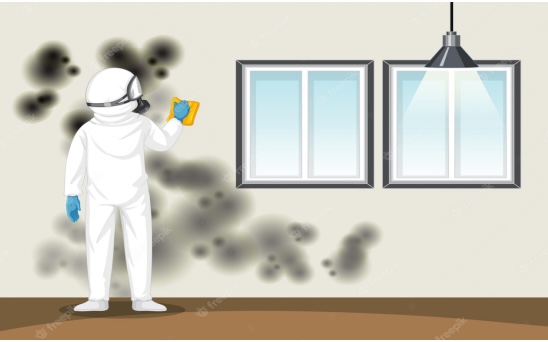As a homeowner, it’s important to ensure that your property is safe and secure for you and your family. One way to do this is by getting a home inspection done. Home inspections help identify potential issues such as termites, mold, and other structural defects that could compromise the safety and integrity of your property. However, navigating home inspections can be overwhelming, especially if you’re not familiar with the process. That’s why in this article, we’ll be discussing everything you need to know about home inspections, including what to expect, how to prepare, and what to do if any issues are uncovered. Whether you’re a first-time homeowner or a seasoned pro, this guide will provide you with valuable insights and tips on how to keep your property safe and secure. So, let’s dive in and discover how to navigate home inspections like a pro!
Common Issues Found in Home Inspections
Home inspections are conducted to identify any issues that may be present in a property. Some of the most common issues found during home inspections include structural defects, electrical and plumbing issues, termite infestations, and mold growth. Structural defects are one of the most serious issues that can be uncovered during a home inspection as they can compromise the safety and stability of a property. Electrical and plumbing issues can also be serious as they can lead to fires, water damage, and other hazards. Termite infestations and mold growth are also serious issues as they can cause significant damage to a property and pose health risks to occupants.
Importance of Identifying and Addressing Issues
Identifying and addressing issues uncovered during a home inspection is crucial for the safety and integrity of a property. Ignoring these issues can lead to more serious problems down the line, such as costly repairs, health hazards, and even structural failure. Addressing these issues early on can help prevent further damage and ensure that your property remains safe and secure. In addition, addressing these issues can help you negotiate repairs or price reductions with the seller before closing on a property.
Understanding the Role of Home Inspectors
Home inspectors are trained professionals who are responsible for conducting a thorough inspection of a property. Their job is to identify any issues that may be present and provide a comprehensive report detailing their findings. Home inspectors will typically look at the following areas of a property: the roof, foundation, electrical and plumbing systems, HVAC systems, and appliances. They may also look for signs of termite infestations, mold growth, and other issues that may compromise the safety and integrity of a property.
Steps to Prepare for a Home Inspection
Preparing for a home inspection is an important part of the process. Here are a few steps you can take to ensure that your property is ready for inspection:
- Remove any clutter or debris from around the property to ensure that the inspector has easy access to all areas.
- Make sure that all utilities are turned on, including electricity, gas, and water.
- Provide access to any keys, codes, or other information that the inspector may need to access certain areas of the property.
- Make sure that pets are secured or taken off the property during the inspection.
- Be prepared to be present during the inspection to answer any questions that the inspector may have.
What to Expect During a Home Inspection
During a home inspection, the inspector will typically spend several hours thoroughly inspecting the property. They will take notes and photos of any issues that they find and provide a detailed report of their findings. The report will typically include a summary of the inspection, a list of any issues that were uncovered, and recommendations for repairs or further inspections. The report may also include photos of the property and any issues that were found.
Tips for Navigating Home Inspections
Navigating home inspections can be overwhelming, especially if you’re not familiar with the process. Here are a few tips to help you navigate the inspection process:
- Be present during the inspection so you can ask any questions that you may have.
- Take notes of any issues that the inspector finds and ask for clarification if necessary.
- Don’t be afraid to ask for a second opinion if you’re unsure about the severity of an issue.
- Negotiate repairs or price reductions with the seller if any issues are uncovered.
- Follow up with any recommended repairs or further inspections to ensure that your property remains safe and secure.
Mold Inspections and Remediation
Mold is a common issue that can be uncovered during a home inspection. Mold growth can pose significant health risks to occupants and compromise the safety and integrity of a property. If mold is found during a home inspection, it’s important to have it remediated as soon as possible. Mold remediation involves removing any mold growth and addressing the underlying cause of the mold, such as moisture or humidity. A professional mold remediation company can help identify and address any mold issues in your property.
Termite Inspections and Treatment
Termites are another common issue that can be uncovered during a home inspection. Termite infestations can cause significant damage to a property and compromise its structural integrity. If termites are found during a home inspection, it’s important to have them treated as soon as possible to prevent further damage. A professional termite treatment company, such as On Demand Pest Control, can help identify and treat any termite infestations in your property.
Other Inspections to Consider
In addition to standard home inspections, there are a number of other inspections that you may want to consider depending on the age and condition of your property. These include:
- Roof inspections to identify any issues with roofing materials, flashing, or gutters.
- Chimney inspections to identify any issues with the chimney or fireplace.
- Sewer inspections to identify any issues with the sewer line.
- Radon inspections to test for the presence of radon gas in the property.
These inspections can help identify any issues that may be present in your property and ensure that it remains safe and secure.
Conclusion and Key Takeaways
Home inspections are an important part of maintaining the safety and integrity of your property. By identifying and addressing any issues that are uncovered during a home inspection, you can help prevent further damage and ensure that your property remains safe and secure. It’s important to understand the role of home inspectors, prepare for the inspection, and follow up on any recommended repairs or further inspections. By taking these steps, you can navigate home inspections like a pro and keep your property safe and secure for years to come.



